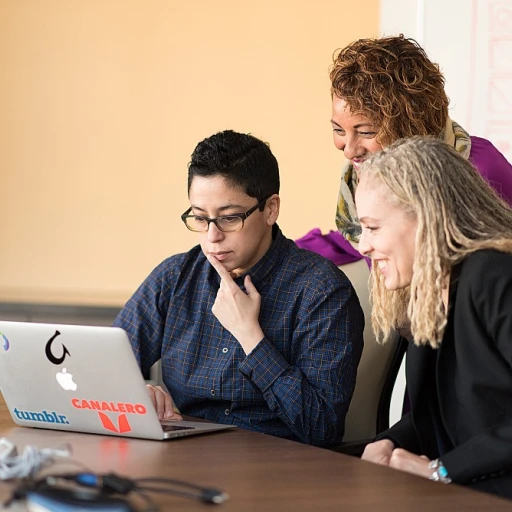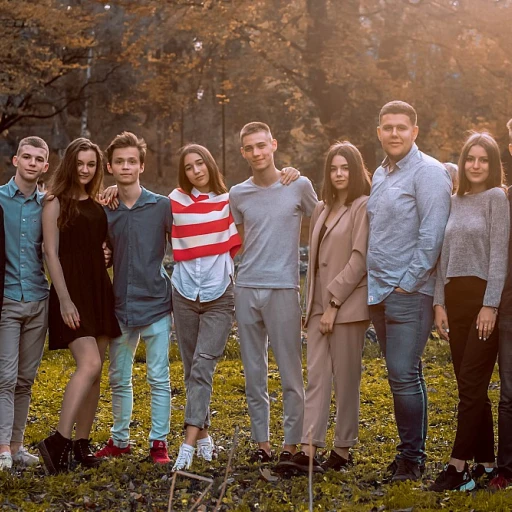
Defining the Camp Counselor Role
Exploring the Core Responsibilities
The camp counselor job is a role that carries significant responsibilities, particularly during the vibrant summer months at both day and overnight camps. Camp counselors play a crucial role in creating a fun and safe environment through a variety of responsibilities that may include leading activities, supervising campers, and fostering team-building among different age groups. The essence of this position revolves around ensuring that campers have an enriching and positive experience that they'll remember for years to come. This job description is not just about supervising but also involves mentoring and guiding campers in their day-to-day activities, ensuring safety during outdoor activities, and assisting with any personal challenges that may arise. These responsibilities are critical, as camp counselors form the backbone of the camp experience, ensuring that the camp runs smoothly and that campers feel supported. Another essential aspect includes the ability to apply problem-solving skills efficiently. Camp counselors often find themselves in situations where quick thinking is required, and they must handle these scenarios while maintaining a positive attitude. Along with these responsibilities, counselors are expected to collaborate with the team to design engaging camp activities. In terms of the application process, candidates looking to explore a career in this field should be prepared to demonstrate relevant experience in working with children, along with strong interpersonal and communication skills. They should also be ready to answer interview questions that assess their ability to handle the unique challenges associated with this role. For those interested in understanding more about similar roles and responsibilities, you may want to explore related fields to gain a broader perspective on the legality surrounding unpaid internships which sometimes overlap with entry-level roles.Key Skills for Effective Camp Counselors
Essential Skillset for a Successful Camp Counselor
Being a camp counselor is one of the most rewarding jobs, especially during summer camps where teamwork and communication play critical roles. When examining the description of a counselor job, it's clear that certain skills are fundamental in ensuring a safe and engaging environment for campers. First and foremost, a camp counselor must possess excellent communication skills. This forms the backbone of a counselor's responsibilities, from addressing campers' needs to effectively collaborating with their team. Moreover, strong communication aids in managing activities, resolving conflicts, and asking the right interview questions to prospective candidates during the application process. Additionally, problem-solving abilities are indispensable. Camp counselors frequently encounter scenarios requiring quick thinking and decisive actions, especially during outdoor activities. A counselor's job description should reflect their capacity to devise solutions that prioritize safety and enjoyment for children. Applicants should also bring a positive attitude and an aptitude for team building. A positive attitude not only enhances a counselor's experience but also impacts the overall mood of the camp. Summer camps thrive on high energy, and a counselor will contribute significantly by maintaining an upbeat and proactive demeanor. Candidates considering this role should review a comprehensive description template, ensuring they meet the outlined qualifications and experience. Those applying can find further insights and resources on enhancing employee onboarding through effective HR communication, which may provide valuable guidance in adapting their approach to the camp counselor job. In summary, the best camp counselors are those who combine various skills seamlessly, ensuring they not only meet but exceed the expectations set forth in their job descriptions. These skills are not just a reflection of individual capabilities but a testament to the collective experience created at camp.The Importance of Communication in Camp Settings
Fostering a Communicative Environment
In summer camps, communication isn't just a skill; it's the backbone of every camp counselor's role. It's imperative for creating a vibrant environment where counselors, campers, and the camp team can thrive together. A strong foundation in communication ensures that all camp activities run smoothly and safely.
Effective communication for camp counselors is about more than just instructing campers; it involves listening, understanding, and responding appropriately to the dynamics of a camp environment. This entails:
- Active listening: Understanding the needs and concerns of campers and fellow counselors. Paying attention and showing empathy can significantly impact how comfortable campers feel, which in turn affects their overall camp experience.
- Clarity and simplicity: Ensuring that instructions for camp activities are easy to follow helps in maintaining a safe environment. This requires counselors to tailor their communication style to different audiences, including younger children and adults.
- Non-verbal communication: Using body language to reinforce instructions and show engagement. Positive body language can help build trust and rapport within the camp community.
- Feedback and encouragement: Providing constructive feedback helps in personal growth and learning. Encouragement promotes a positive attitude, motivating both campers and fellow counselors to give their best.
Challenges inevitably arise in any camp setting, often revolving around ensuring safety and resolving conflicts effectively. When communication falters, it can lead to misunderstandings, activities falling apart, or even jeopardizing the well-being of campers. Therefore, camp counselors need to hone their problem-solving skills alongside their communication techniques to handle any unforeseen challenges promptly.
Organizations must recognize the critical role of communication when considering candidates during the application process for a camp counselor job. Identifying candidates who not only possess the necessary skills but also demonstrate solid interpersonal communication can ensure a successful and enriching summer camp experience for everyone involved.
Challenges in Camp Counselor Communication
Overcoming Communication Hurdles in Camp Counselor Roles
Communication can present unique challenges in a camp setting, where counselors are tasked with managing a dynamic environment while ensuring the safety and engagement of campers. Understanding and addressing these challenges is crucial for anyone interested in applying for a camp counselor job.- Multitasking in High-Pressure Situations: Counselors often juggle multiple responsibilities, like organizing outdoor activities and managing campers' needs. This requires quick problem-solving and effective communication to keep the team running smoothly.
- Diverse Age Groups and Needs: Camp counselors work with children from different age groups, each with varying levels of understanding and ability to communicate their needs or concerns. Adapting communication styles to suit these differences can enhance the overall camp experience.
- Ensuring Safety in Large Groups: With the safety of campers a primary responsibility, counselors must clearly and effectively communicate safety rules and procedures. Miscommunication can lead to confusion and potentially unsafe situations.
- Fostering Team Building: Building a cohesive team among fellow counselors allows for a more supportive and efficient work environment. Open lines of communication promote a positive attitude and enable better collaboration.
Human Resources' Role in Supporting Camp Counselors
How HR Contributes to Camp Counselor Success
In a summer camp setting, human resources play a crucial role in supporting camp counselors by providing them with the right tools and resources to excel in their roles. Let's explore how HR helps enhance the camp counselor experience.- Creating Detailed Job Descriptions: HR ensures that each camp counselor has a clear job description. This helps candidates understand the responsibilities they'll undertake, ranging from supervising outdoor activities to team building exercises. In addition, it sets expectations for skills such as problem solving and maintaining a positive attitude while working with children.
- Effective Recruitment and Selection Process: By designing an effective application process, HR can attract the best candidates for the counselor job. They craft interview questions to gauge a candidate's experience with campers and their ability to foster a safe and engaging camp environment. This comprehensive approach ensures that the team is composed of skilled counselors who can adapt to various camp settings.
- Training and Development: HR organizes training sessions that equip camp counselors with essential skills needed for success, such as communication and conflict resolution. These learning opportunities allow counselors to better manage their responsibilities and ensure camper safety, creating a positive experience for everyone involved.
- Ongoing Support and Resources: Throughout their summer camp tenure, HR provides ongoing support. This includes facilitating team meetings where counselors can exchange experiences and ask questions, thus fostering a collaborative work environment. HR's involvement ensures that counselors feel supported, encouraged, and capable of doing their best work.
Case Studies: Effective Communication in Camps
Real-Life Examples of Successful Communication
In the world of summer camps, effective communication can make or break the experience for both campers and counselors. Let's explore some real-life examples that highlight how strong communication skills can enhance the camp environment.
Building a Cohesive Team
One camp, renowned for its outdoor activities, faced challenges in ensuring safety during high-energy events. The camp counselors implemented a daily briefing system where each counselor would share insights and updates from their specific groups. This approach not only kept everyone informed but also fostered a sense of teamwork and shared responsibility. The counselor job description emphasized the importance of these briefings, ensuring that all candidates understood the critical nature of communication in their roles.
Problem Solving with a Positive Attitude
Another camp focused on problem-solving skills by encouraging counselors to engage in role-playing scenarios with campers. These activities allowed counselors to practice handling common issues that arise, such as conflicts between campers or logistical challenges during activities. By maintaining a positive attitude and open communication, counselors were able to create a supportive environment that encouraged campers to express their concerns freely.
Empowering Campers Through Open Dialogue
In a different summer camp, counselors initiated a 'Question of the Day' session, where campers could ask questions about the day's events or voice any concerns. This initiative not only improved the camper experience but also helped counselors understand the needs and interests of the children they were working with. The open dialogue created a trusting atmosphere, making it easier for counselors to apply their skills in real-time situations.
Enhancing the Application Process
To attract the best candidates, some camps have revamped their application process by including interview questions that assess communication skills and teamwork abilities. By prioritizing these skills in their job descriptions, camps ensure that potential counselors are well-equipped to handle the dynamic and interactive nature of camp life.
These case studies demonstrate that when camp counselors prioritize communication, they not only enhance their own experience but also significantly improve the overall camp environment for everyone involved.













